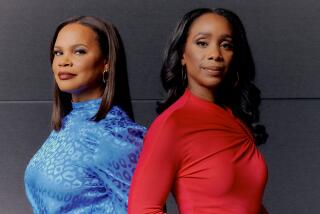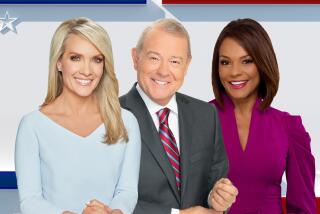KOPPEL TO MODERATE SPECIAL
- Share via
NEW YORK — The relationship between the news media and foreign governments in covering human rights issues is the subject of an upcoming public television special moderated by ABC’s Ted Koppel.
The one-hour program, “The Media and Human Rights,” was conceived as the first in a series of similar specials and was taped last March in Washington. It is scheduled for broadcast Sept. 24 on public television stations around the country, including KCET Channel 28 in Los Angeles.
Film footage of journalists being beaten and chased, of government-controlled news and of underground presses provide background for a discussion of volatile relations between the news media and the governments of South Africa, Poland and the Philippines.
The panelists include representatives of government, human rights organizations and the news media, including Charlayne Hunter-Gault of “The MacNeil/Lehrer NewsHour,” William Wheatley Jr., executive producer of NBC’s “Nightly News,” and New York Times columnist Anthony Lewis.
“People kept telling me that nobody was interested in human rights in the Reagan era, and that I would never get funding for the series, but I thought they were wrong and I persisted,” said Catherine Gay, describing her four-year effort to find funding for the initial program.
She said the money finally came from private foundations, including the Ford Foundation and the Polaroid Foundation, and that, once completed, the special was “quickly booked” by public television.
The program, as well as the projected series, is produced by the New York-based Center for Communications, a 6-year-old, nonprofit, nonpartisan group that organizes seminars, symposiums, conferences and workshops on the communications industry for university students and faculty.
Up until now, the work of the center has been confined to the New York metropolitan area, according to Gay, who is its executive director. She said the coming special marked the first attempt to televise the work of the center.
“We want to expand our geographical base to include universities all around the country, and we also feel our programs are useful to the general public, and television is clearly one way to do this,” she explained.
Gay said that if additional money can be raised for the series, future installments would look at the media and human rights in Latin America, the Middle East and India, among other countries.
More to Read
Sign up for Essential California
The most important California stories and recommendations in your inbox every morning.
You may occasionally receive promotional content from the Los Angeles Times.













